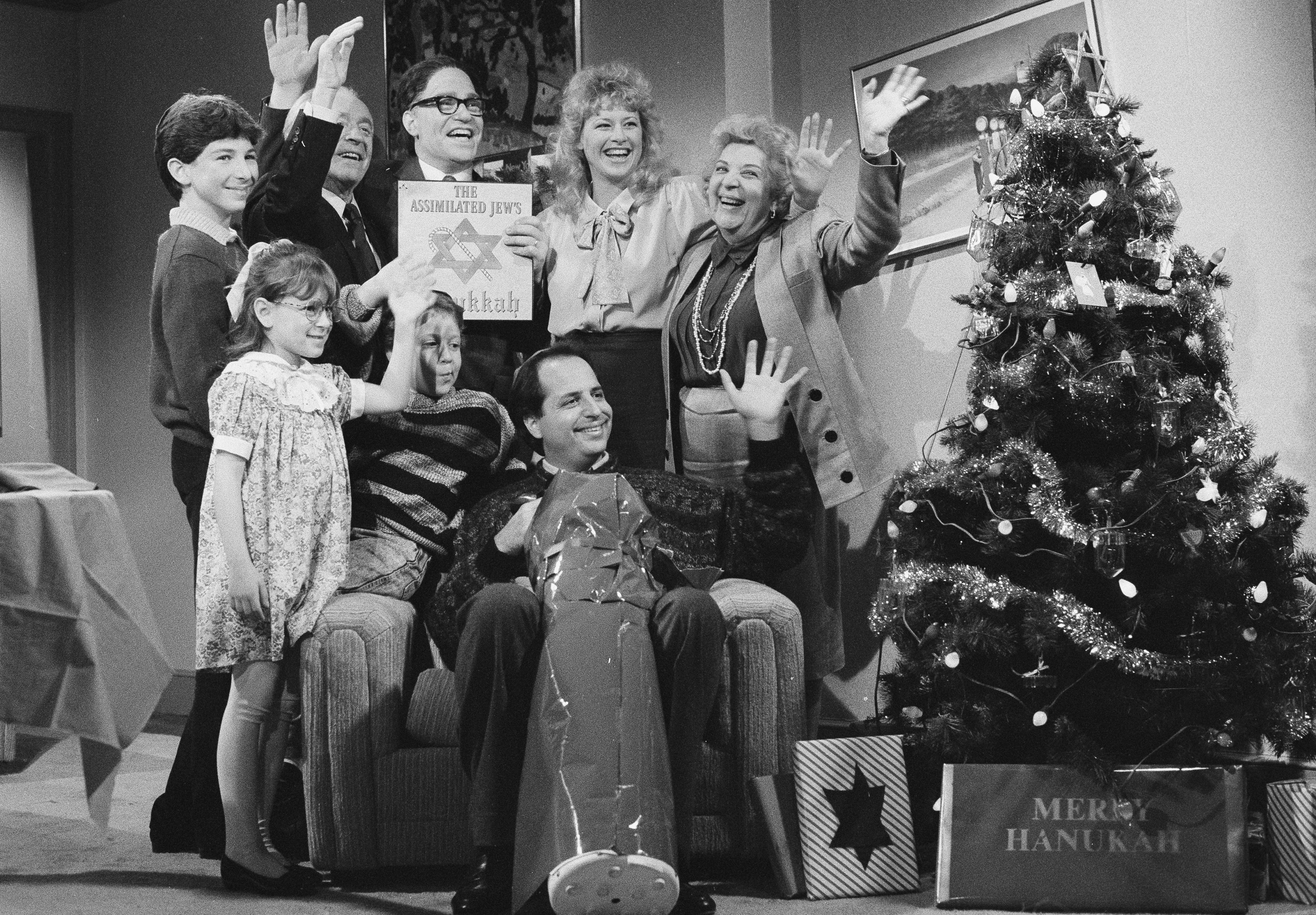
(Editor’s note: This piece was originally published in 2018 but we’re republishing it today because it’s, well, that time of year. Enjoy.)
“You grow up Jewish and you can’t help it, it’s a big part of your life being the person who’s not celebrating Christmas,” TV Funhouse creator and former Saturday Night Live writer Robert Smigel told us recently. (Smigel, by the way, is also the mad genius behind Triumph the Insult Comic Dog.)
The accuracy of this remark is not lost on me as someone who was raised half-Jewish and half-Catholic and kept on the outside looking in at Christmas revelry during part of my childhood (before my parents eventually relented and started celebrating both — which is its own weird thing). That’s why Smigel’s “Christmastime For The Jews” means so much. Born on the December 17, 2005 episode of Saturday Night Live and inspired by a love of claymation Christmas specials, Wall of Sound music, and the desire to merge them with Jewish and pop culture references that swing from clever to delightfully absurd, this lovingly crafted sketch/song exists as something Jews (and half-Jews) can call our very own.
The weight of what “Christmastime For The Jews” means to people who share an annual laugh, let the song dance around in their head for a few days, and feel utterly seen by its timeless jokes about the Jewish experience is not lost on the people who created it. Partly because they feel it too and partly because, as you’ll see, an immense amount of time, effort, and heart went into making it and getting it as close to perfect as possible. And since you’re reading this, you likely love the sketch and feel like they got pretty close. In the off chance you’ve not seen it, or just want to relive it again, here it is below.
To better appreciate the story of “Christmastime For The Jews,” you have to go back to Smigel’s past tinkerings with the themes that came to life in the sketch. Here’s the short(ish) version: In 1987, Smigel wrote a sketch called “The Assimilated Jew’s Christmas” that was, by his account, a much earlier (and direct) attempt at speaking to the dearth of Jewish holiday standards, at least in contrast to those orbiting Christmas. Smigel acknowledges that the sketch didn’t quite “hit” in the same way that others like “Hanukkah Harry,” Adam Sandler’s “Hanukkah Song,” and “Christmastime For The Jews” did among SNL‘s best-remembered contributions to Jewish holiday pop culture (which are basically the only contributions to Jewish holiday pop culture over the last 30 years). It features Al Franken as Henry Kissinger selling an album of Jewish Christmas songs that were “acceptable for Jewish people to hear, because all Jews love Christmas carols,” says Smigel. “Christmas carols are so much better than Hanukkah songs,” he (accurately) adds before offering a reminder that many great Christmas carols were actually written by Jews.

“The Assimilated Jew’s Christmas” and “Christmastime For The Jews” were far from Smigel’s only attempts at holiday parody. “I did two that involved a Charlie Brown Christmas, which is my favorite half-hour of television ever, probably,” he says. “I did a big one after 9/11 that was a Rudolph The Red-Nosed Reindeer parody.”
Smigel also has an affinity for crafting what he calls “silly musical stuff” that goes back to the late ’80s, as well. He authored a jingle for the first “Mister Short-Term Memory” sketch in 1988. More jingles followed before they became so common on the show that Smigel says they were mocked by The Simpsons.
Smigel left SNL in the early ’90s to work as head writer for Conan O’Brien during his foray into late-night before joining The Dana Carvey Show, where he debuted “The Ambiguously Gay Duo.” Cartoons had also been an interest of Smigel’s going back to his time on SNL with “Cluckin Chicken” (where he worked, for the first time, with animator and eventual TV Funhouse cohort J.J. Sedelmaier). He was eager to continue playing in that space, conjuring up ideas for “Fun With Real Audio” and “The X-Presidents” before pitching SNL producer Lorne Michaels on an idea for a unique path back to the show after The Dana Carvey Show got canceled. That idea eventually became the TV Funhouse so many of us came to know and love.
“I was aware of how much fun I was having reaching back into what made me laugh as a child,” says Smigel. “It felt very pure and very exciting.”
Which brings us back around to “Christmastime for the Jews.” The stories we collected about its creation, from Smigel and the creative team involved — contributing writers Julie Klausner (Difficult People), Eric Drysdale (Full Frontal With Samantha Bee), Scott Jacobson (Bob’s Burgers), musical director Steven Gold, director David Brooks, producer Samantha Scharff, and legendary singer Darlene Love — shed some light on the mixture of insanity, brilliance, stubbornness, and catharsis that ran through the entire three-week production in addition to the irony of launching the same night that internet-culture game changer “Lazy Sunday” launched.
Source: https://uproxx.com/tv/christmastime-for-the-jews-oral-history/
